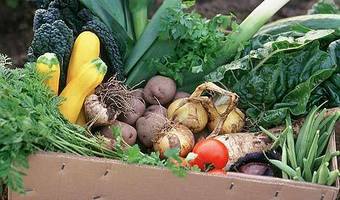 Organic fruits, vegetables and cereals are up to 69 percent more nutritious than conventionally grown ones according to a study, the first most comprehensive one on nutritional difference between the two.
Organic fruits, vegetables and cereals are up to 69 percent more nutritious than conventionally grown ones according to a study, the first most comprehensive one on nutritional difference between the two.
The report is already inviting a cocktail of reactions among proponents and opponents of organic farming with Kenyan researchers welcoming it as a sure guide to ‘responsible farming’ in the country. The highlight of the report is the higher concentration of antioxidants in organic crops, standing at 69 percent compared to conventionally grown crops.
Numerous studies have linked antioxidants to a reduced risk of chronic diseases, including cardiovascular and neurodegenerative diseases and certain cancers. The study found that a switch to eating organic fruit, vegetable and cereals – and food made from them – would provide additional antioxidants equivalent to eating between one to two extra portions of fruit and vegetables a day.
The study, led by scientists from Newcastle University, is the most extensive analysis of the nutrient content in organic versus conventionally-produced foods ever undertaken and is the result of a groundbreaking new systematic literature review and analysis.
The study also showed that pesticide residues were four times more likely to be found in conventional crops than organic ones.
Carlo Leifert, professor of ecological agriculture at Newcastle University who led the study, said: “The organic versus non-organic debate has rumbled on for decades now but the evidence from this study is overwhelming – that organic food is high in antioxidants and lower in toxic metals and pesticides.
Kenya has been shifting to organic farming buoyed by demand by health conscious middle class and a belief in ‘responsible farming’ which organic farming is associated with. Industry players now say the study now rubberstamps their resolve to encourage more farmers to go organic. “With heavy metals now being found in most fertilizers and farm chemicals which are translating into cancer cases, organic is the way to go. It not only stems those cancer causing organisms but also increases the nutritional value of crops grown in the country,” said June Ndalamwa a scientist in Nairobi.
















Comments powered by CComment